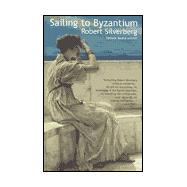The world's most distinguished author of the literature of the fantastic presents his most extraordinary stories of worlds lost and dreams fulfilled...
In his illustrious forty-five year career as a novelist and author of short fiction, Robert Silverberg has belonged in the company of the best writers of the 20th century. His writing has been compared to Conrad, Huxley, and Orwell.
In this definitive collection Silverberg presents the novellas that have won him multiple Hugo and Nebula Award nominations, including his Nebula Award winning achievement, "Sailing To Byzantium." Here are the virtuoso performances of the third phase of Silverberg's astounding career: the Nebula Award nominee "Homefaring"; the Hugo Award nominee "The Secret Sharer"; "Thomas The Proclaimer" and "We Are For The Dark."
If you are a lover of Silverberg's work or are simply looking for a place to begin a relationship with the literature of science fiction and fantasy, this is the place to start.








